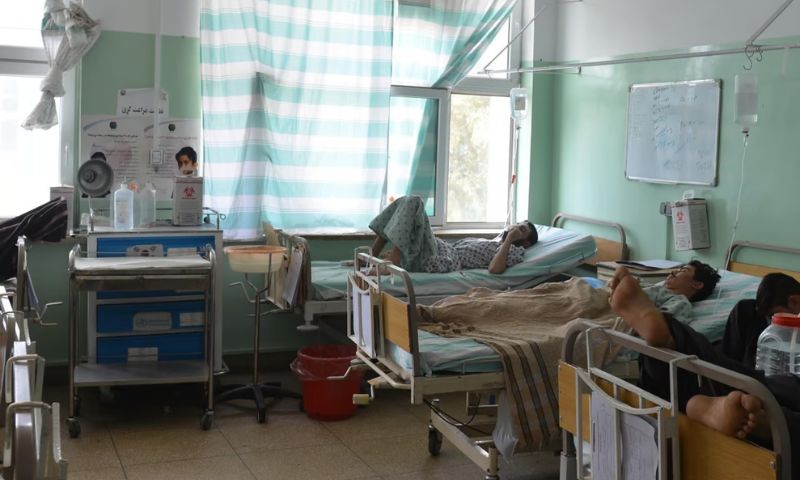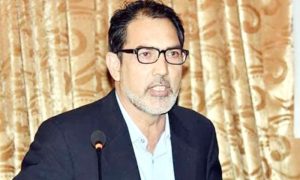KABUL: In a recent announcement, the World Health Organization (WHO) has raised alarm over the impending closure of 33 secondary and tertiary hospitals in Afghanistan.
These hospitals, which cater to the medical needs of approximately 9 million Afghan citizens, are on the brink of discontinuing their services due to a critical lack of funding.
The WHO’s latest report, issued in July 2023, underscores the severity of the situation. During this month alone, emergency healthcare services were provided to a staggering 241,874 individuals, encompassing both primary healthcare centres and hospitals, which received support from the WHO.
The WHO’s efforts to bolster healthcare infrastructure have been commendable. It has taken strides to address the scarcity of medical facilities in underserved regions across all 33 provinces. This initiative has led to the establishment and operation of 275 primary healthcare facilities and 21 hospitals in collaboration with various partners.
However, the bleak reality on the ground tells a different story. Patients travelling from different provinces to access medical treatment in central areas have expressed dissatisfaction with the level of healthcare services available. Concerns have been voiced over the quality of treatment and the accessibility of essential medications.
Shir Ahmad, a resident of Bamiyan, lamented the high cost of treatment and the dearth of competent medical professionals. Abdul Satar from Paktika echoed these sentiments, emphasizing the inadequate supply of medicines. Hasibullah, residing in Takhar, highlighted the plight of patients who must purchase medicines out of their own pockets.
While the Ministry of Public Health has yet to respond to the WHO’s report, it has previously indicated a commitment to exploring alternative avenues for collaboration within the national healthcare sector. Medical experts within Afghanistan have expressed the urgent need for the Ministry to proactively develop health solutions that align with the unique challenges faced by the Afghan populace.
Sayed Abdullah Ahmadi, a prominent doctor, urged the Ministry of Health to adopt a more self-reliant approach, emphasizing the importance of tailoring healthcare packages to the local context. Payenda Mohammad Saleh, another respected medical professional, called upon both the WHO and the Ministry of Public Health to extend their support to Afghanistan’s beleaguered hospitals.
These concerns have only been magnified by recent developments. The International Committee of the Red Cross (ICRC) has signalled that it might cease its financial support for 25 Afghan hospitals by the close of August. Funding constraints have placed the ICRC in a difficult position, compelling them to consider the phase-out of their Hospital Program in the country.
Diogo Alcantara, the spokesperson for the ICRC in Afghanistan, has emphasized the ongoing efforts to secure alternative sustainable support mechanisms for the nation’s hospitals. However, the impending withdrawal of the ICRC’s assistance underscores the immediate need for increased international collaboration and funding to avert a catastrophic collapse of healthcare services in Afghanistan.


























